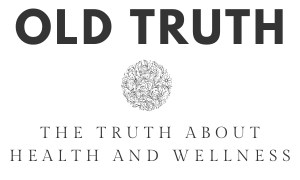For individuals and couples who have trouble starting or are unable to start biological families, adoption is a decades-old process that allows them to adopt a baby or child to raise as their own. Science now offers people with fertility struggles other effective ways to have children: egg donation and in vitro fertilization (IVF).
Egg donation and IVF both require couples to rely on a third-party they may know or may not know for help. The intended parents and the third-party involved should get an understanding of the egg donation process and IVF. Whether the intended parents choose a friend, family member, or stranger to be their egg donor, they should consult the best medical professionals and team members at egg donor agencies to ensure their egg donor is a match.
Future parents and egg donors wanting to know about the egg donation process as well as how fertilization, surrogacy, or egg donation can impact their health, fertility, and bodies can find the answers to their questions by consulting team members with one of the most successful donor egg programs in the United States; this clinic services Southern California from its location in Los Angeles. You can find the best egg donor Los Angeles has to offer through the Pacific Fertility Center. This organization consists of professionals who support clients every step of the way.
For residents of LA, Beverly Hills, or those outside of the state, visiting this clinic on 10921 Wilshire Blvd Ste 700 Los Angeles, CA 90024 is a worthwhile experience that results in extensive guidance and support in choosing an egg donor. Additionally, these professionals take intended parents’ medical and nonmedical factors into consideration to determine the best infertility treatment and solution, resulting in a successful pregnancy despite one’s marital status, finances, or age.
While feeling good about helping others achieve the roles they want as parents, it’s natural for egg donors to worry if egg donation impacts their plans for a family of their own. Will they be able to start a family later on? By participating in egg donation, are they giving all their eggs away?
Egg Count and Production
A common misconception some people have about being an egg donor is that egg donation and surrogacy can quickly deplete the supply of a woman’s eggs. No research concludes that being an egg donor depletes a woman’s natural egg supply. The truth is that women enter the world with a lifetime supply of eggs, an estimated one to two million.
Once a woman reaches puberty, she has approximately 400,000 eggs. Giving donor eggs to others when participating in an egg donation program doesn’t affect one’s future fertility, as donor egg IVF doesn’t remove any more eggs than what the female body lets out.
Egg donation technology and processes utilized to allow women to benefit from donor egg use aren’t much different from those involved in IVF or egg freezing. With IVF donating, egg fertilization occurs outside the body, and the intended mother’s uterus receives the transferred embryos. Donor egg harvesting occurs inside the donor rather than the intended mother. Embryo injection into the mother-to-be’s uterus is the next step. If the future parents use a surrogate, the surrogate receives the donor eggs.
While egg donation serves to help the intended parents achieve their parenthood goals, the process is also an opportunity for women to learn more about their health every step of the way. Egg donors typically go through a vetting process to ensure they’re a good fit for the parents-to-be; preparation for egg donation could include fertility and genetic testing and screening. Being an egg donor doesn’t deplete one’s egg supply, but could inform them about their body’s viable egg production and reproductive health.


Comments are closed, but trackbacks and pingbacks are open.